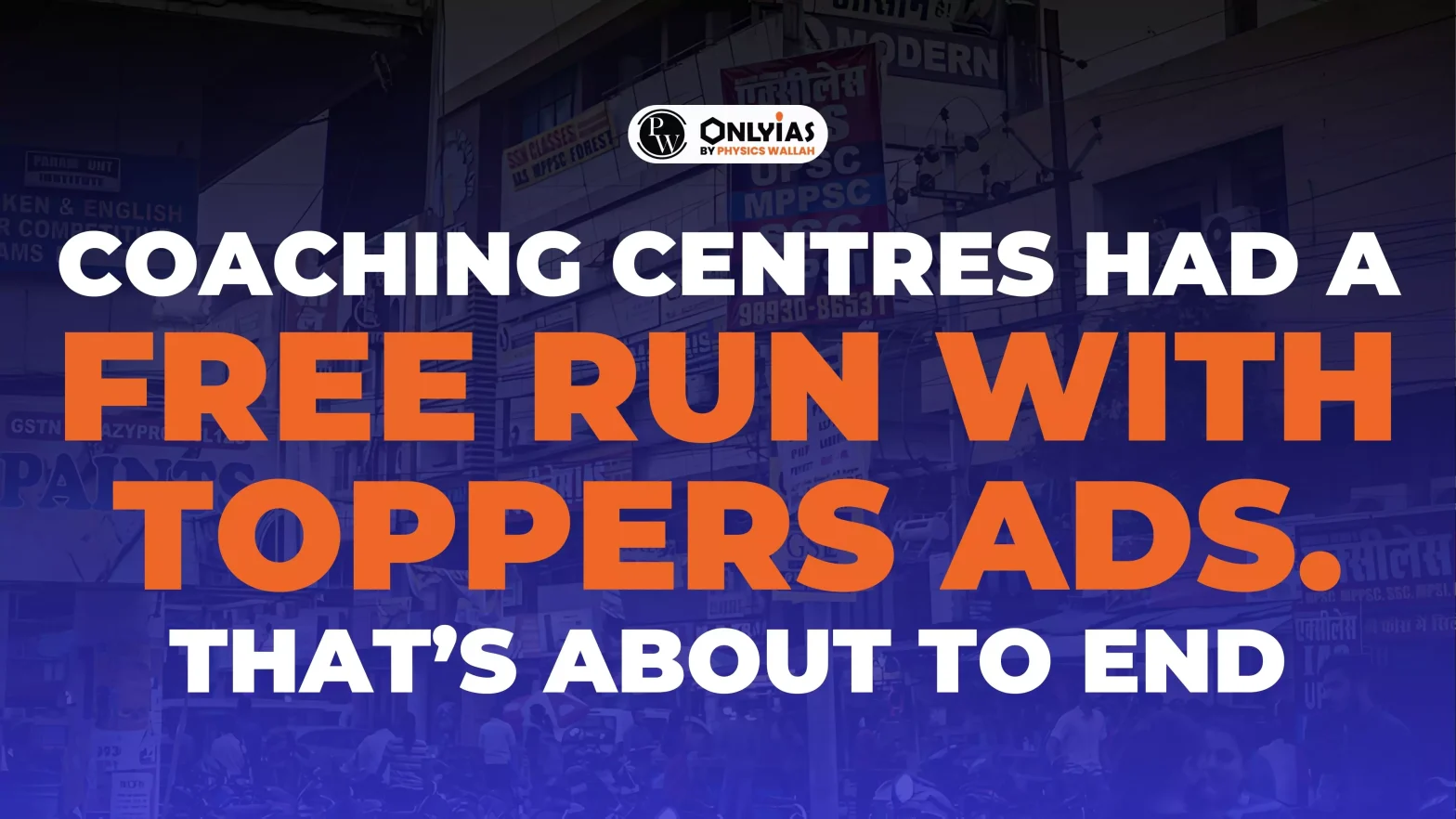Delhi’s prominent IAS coaching hubs, such as Mukherjee Nagar and Karol Bagh, are often filled with posters of successful UPSC candidates, many of whom are claimed by multiple institutes. In response to this widespread practice, the Central Consumer Protection Authority (CCPA) is finalising new guidelines to address misleading advertisements and ensure greater transparency in promotional activities.
- Current Practice: In recent years, aspirants have been required to sign agreements upon enrolment, allowing coaching centres to use their credentials—such as photos, rank, video clips, or messages—while claiming their success in the prestigious UPSC examination.
- New Guidelines: Under the new guidelines, aspirants will only be permitted to sign such contracts or agreements after successfully passing the exam, and only if they voluntarily choose to do so.
- These contracts will be valid for six months to one year and will offer options regarding the use of candidates’ credentials, including photos, names, ranks, video messages, or even addressing aspiring candidates in classes.
- Critics View: Critics argue that the new guidelines, which allow contracts to be signed after passing the exam, may end up formalising the “purchase” of toppers, a practice that was previously done more discreetly. They believe the prescribed process could legitimise what was once hidden. The final guidelines are still pending release.
Enroll now for UPSC Online Course
![]() 13 Sep 2024
13 Sep 2024

